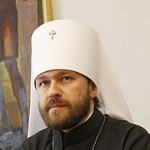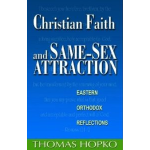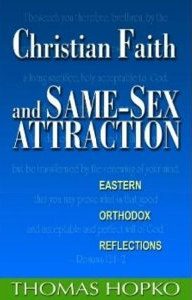
Deprecated: trim(): Passing null to parameter #1 ($string) of type string is deprecated in /home/aoiusa/public_html/wp-content/plugins/sexybookmarks/public.php on line 388
Deprecated: trim(): Passing null to parameter #1 ($string) of type string is deprecated in /home/aoiusa/public_html/wp-content/plugins/sexybookmarks/public.php on line 394
Deprecated: trim(): Passing null to parameter #1 ($string) of type string is deprecated in /home/aoiusa/public_html/wp-content/plugins/sexybookmarks/public.php on line 400
On October 2, 2012, the DECR chairman spoke at the opening of an international reflection-action conference on ‘Spiritual Feat of Sts Constantine and Helen Equal-to-the-Apostles – the Beginning and Triumph of Christendom in Human History’, which took place at the Russian Academy of Sciences.
Dear Participants and Guests of the Conference,
Allow me to greet you on behalf of the Primate of the Russian Orthodox Church, His Holiness Patriarch Kirill of Moscow and All Russia. In his statements, His Holiness has often addressed the theme of Christian values which have formed the European civilization and become the spiritual foundation of our people. It is an important theme to be constantly revisited.
The Christian world is approaching a remarkable date, the 1700th anniversary of the Edict of Milan, which entered the world history as a most important legal document dividing the two eras – those of heathen Roma and Christian Europe. As far back as 1675 years ago died the initiator of this document, Emperor Constantine the Great, proclaimed by the Church to be holy and equal to the apostles. Speaking about the significance of the holy Emperor Constantine’s deeds for Christians, it is necessary to recall those times of persecution which the Church of Christ had experienced before Roman citizens and subjects were granted freedom of religion.
Our Lord Jesus Christ warned his followers: ‘If they persecuted Me, they will also persecute you’ (Jn. 15:20) and ‘they will lay their hands on you and persecute you, delivering you up to the synagogues and prisons. You will be brought before kings and rulers for My name’s sake…’ (Lk. 21:12). In addition to the persecution by the Jews, which had begun already during our Saviour’s life on earth, the heathen Roman society, too, saw Christians as new enemies. There were several reasons for it. The heathen worship was a source of subsistence for a whole range of persons including pagan priests, producers of idols and oracles. Christians, who rejected the worship of false gods, were accused of godlessness and abandonment of the faith of the forefathers, which was a great dishonour and a moral challenge to the whole people. Extremely suspicious was their evasion from pubic amusements and circuses, which did not add to people’s sympathy for them. Their refusal to recognize the emperor as god, to worship his image and to offer sacrifices provoked suspicions of their disloyalty and high treason. The most terrible crimes began to be imputed to Christians, who were seen as man-haters and people of low life.
Jesus Christ explained to his disciples the reasons for this attitude to be shown to them by those around them: ‘If you were of the world, the world would love its own. Yet because you are not of the world, but I chose you out of the world, therefore the world hates you’ (Jn. 15:19).
Heathen intellectuals, without taking the trouble to plunge into the essence of Christ’s teaching, described it as ‘pernicious prejudice’ (Tacitus) or ‘rude and unstinting’ (Pliny the Younger). Among those who came out against Christianity were Stoics, Epicureans and New-Platonist including Lucian of Samosata, Celsius, Flavius Arrianus, Hierocles. Some did not understand the courage and steadfastness of Christian martyrs in their faith, while others believed their teaching to be ‘a random walk in the air’ which, unlike the views of Neo-Platonists, did not even recognize the truth of other religious systems and philosophical views. Verily, Christianity became ‘to the Jews a stumbling block and to the Greeks foolishness’ (1 Cor. 1:23).
The public opinion was now quite ready and the only thing required for mass persecution was the political will. What was needed was a spark to set fire to the explosive mixture of rumours, stereotypes and established ideas of Christians. And this spark, in the literal sense of the word, was provided by the fire in Rome kicked up, according to some evidence of contemporaries, by Emperor Nero. Rumours of his complicity in the disaster began to circulate and to supress them he accused Christians of the arson. Tacitus thus described the developments: ‘To get rid of the rumours, Nero fastened the guilt and inflicted the most exquisite tortures on a class hated for their abominations, called Christians by the populace… Mockery of every sort was added to their deaths. Covered with the skins of beasts, they were torn by dogs and perished, or were nailed to crosses, or were doomed to the flames and burnt, to serve as a nightly illumination, when daylight had expired’ (Tacitus Annals XV.44).
The persecutions were sometimes to subside sometimes to flame up. Under Diocletianus and his successors, the persecution against Christians became the empire’s last spurt to paganism. Rome’s religious pluralism proved to be incompatible with ‘rigid’ and ‘intolerant’ citizens and subjects who sought the absolute Truth. Once again the powerful state machine failed to cope with unarmed Christians who did not even put up any resistance, which led to radical changes in the empire and St. Constantine Equal-to-the-Apostles was the one who initiated and carried them out.
Historians and theologians were especially interested in the question what exactly made Constantine the Great to take side with Christianity. Clearly, he, just as his father Constantius Chlorus, adopted a favourable attitude to Christians originally under the influence of his mother, the holy Empress Helen Equal-to-the-Apostles. But what was it that ultimately guided the emperor when he initiated the preparation and publication of the Edict of Milan? – Was it a naked political calculation devoid of sincere religious feeling or sincere acceptance of Christ in his heart? Historical sources, which tell us about the personality of Constantine the Great, are rather polar. There is church historian Eusebius of Caesarea, on one hand, and heathen author Zosimus, on the other, who felt aversion to the personality of the emperor. These sources were used as a basis by later researchers who added their own subjectivism to this question. There are, for instance, sceptic assessments by German historian Jacob Burckhardt, who described Emperor Constantine as a smart politician and pure pragmatist with no religious motivation whatsoever. It is impossible to agree with it at least because by that time there had been no more than 10% of Christians in the empire, and to rely on such a narrow segment of the population meant to venture upon an extremely risky political experiment, the more so that this risk was not groundless as neither Senate nor Roman public supported Constantine’s religious policy. It was evident from the celebrations marking the 20th anniversary of the imperial rule in Rome when the emperor did not take part in the sacrifice made on the occasion of his arrival in the capital, which led to the Romans’ open indignation ready to develop into an armed rebellion. The open hostility of predominantly heathen Rome became one of the factors which compelled Constantine the Great to think over a new capital city for the empire.
The turning point in the emperor’s religious perception of the world happened during his battle with usurper Maxentius before which Constantine had been instructed by the God of Christians about the way to defeat the enemy.
In 313 in Milan, a conference took place between Constantine the Great and Licinius during which the Edict of Milan was issued on behalf of the two personalities augustus, addressed to presidents of the provinces. Its text has survived in Lactancius’s book ‘On the Deaths of Persecutors’ and in ‘Church History’ by Eusebius of Caesarea. The edict disavowed the previous acts concerning Christians. Unlike the 311 Edict of Galerius, this document proclaimed full religious freedom to the Roman citizens and subjects: ‘…no one whatsoever should be denied the opportunity to give his heart to the observance of the Christian religion, of that religion which he should think best for himself’. Thus, the heathen worship de jure lost its dominance.
St. Constantine the Great began a gradual process of raising the legal status of the Church. It continued, with certain setbacks and attempts to restore the hegemony of heathenism, under his successors, and Theodosius the Great was to complete the empire’s legal rupture with heathenism.
The Edict of Milan laid foundations for future relations between church and state, which were to be described by Justinian as symphony of priesthood and kingdom.
Recalling in our days the high price paid by Christians for this freedom, we are grieved to see how easily today’s Europe is parting with her Christian identity. The concept of European integration has left aside the religious component. First, any reference to God and Christianity was removed from the draft Constitution of the European Union and later from the Lisbon Treaty, which has replaced the yet non-ratified Constitution. As a result, the whole ideological basis of the European integration was reduced exclusively to freedom, democracy and rule of law – a secular paradigm inconsistent with Europe’s civilizational heritage. The secularization has led to the fact that most Europeans have ceased to correlate their life with the Gospel in order to live according to the ‘consumer society’ standards. More than that, Christianity has become an alien element in public life, which has increasingly encountered manifestations of Christianophobia.
Regrettably, the dominant secular worldview is ousting religion from public space, being declared now ‘a private affair’. That is to say, you can do whatever you wish at home, to believe in whatever you wish ‘in your soul’, but you should cooperate with the state and society only according to established rules, the same for all. This seemingly fair approach becomes a true challenge for Christians when these rules begin to contradict the foundations of Christian ethics. The recognition of such things as abortion, euthanasia, same-sex unions by the secular society makes Christians outcasts since they cannot agree with them as a norm for human life.
The logic of modern secularism reminds that of heathen Rome: you can believe in whatever you like but you are obliged to offer sacrifices to gods which are ‘tolerance’ and ‘pluralism’. The faith in God and readiness to follow His commandments are increasingly described as private opinion and it has become simply indecent, out-dated and archaical to proclaim it too loudly. To name things by their proper names, for instance abortion as infanticide, euthanasia as murder and suicide, is now treated as acts of intolerance incompatible with pluralism of opinions and declared ‘infringement on citizens’ rights and freedoms’.
More and more often in the European Union countries we see discrimination against citizens who express active Christian position. Moreover, even the wearing of Christian symbols, such as baptismal crosses, can be seen by some employers as a violation of ‘corporate culture’. There are voices speaking of the need to ban public Christmas celebrations under the far-fetched pretext that it may insult people of other religions. Similar struggle against the presence of religious symbols in schools have been waged for several years in the European Court of Human Rights under the case of ‘Lautsi vs. Italy’ – a vivid example of an attempt of a single person, under the pretext of the infringement of her rights, to impose her own will on millions of people. ‘The religious neutrality of society’ built by proponents of European secularism has turned in practice into a ‘value cleansing’ of this society.
How can Christians oppose such tendencies? What does the power of Christianity lie in? It is determined by the faith of Christians, their ability to live up the Gospel’s law, to bring the light of Divine Truth to people. Having lost the ability to be the salt of the earth, Christians become unable to oppose various ideologies asserting their own rules of common human life.
Today’s conference sets as its task to reflect on the 1700 year-long journey of the Church of Christ from the Edict of Milan to our days – the era filled with many events significant for Christians. And the most important thing in this reflection is an answer to the question about the future of Christianity, the place and role of Christian values in the life of the society, the family and the individual.
Thank you for your attention.


